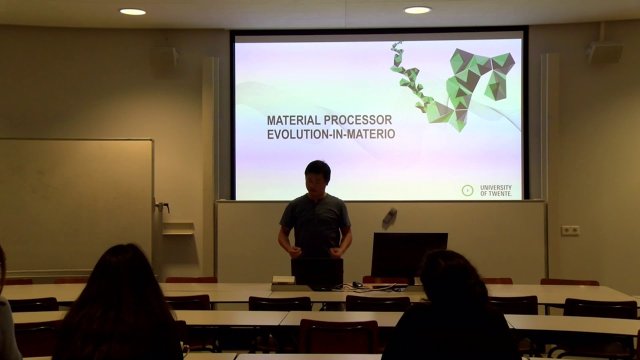Speaker: Tao Chen, NanoElectronics Group and Center for Brain-Inspired Nano Systems (BRAINS), University of Twente
Title: Neuromorphic computation with evolvable materials
Abstract:
The biological brain solves complex computational problems much more efficiently than conventional digital computers owing to the parallel processing of information. In conventional computers, the energy efficiency is limited by the transfer of data back and forth between the processing unit and the memory, referred to as the Von-Neumann bottleneck. To overcome this bottleneck, building blocks of parallel computers based on CMOS (complementary metal oxide semiconductor) neurons, memristors, and oscillators have been proposed, inspired by the brain.
Parallel computation can also be realized by exploiting the physical properties of materials. Taking advantage of the nonlinear or dynamical properties of materials, data can be projected into a high-dimensional space efficiently, and become linearly separable, which facilitates machine learning tasks such as the classification of speech and images. We have recently exploited the nonlinearity of hopping conduction through an electrically tuneable network of boron dopants in silicon to perform canonical machine learning task, i.e. solving linearly inseparable exclusive-OR (XOR) problem. The dopant network can also perform four-input binary classification, i.e. extracting four-pixel features. By pre-processing basic features with our dopant network, the overall accuracy of a linear classifier in classifying the MNIST (Modified National Institute of Standards and Technology) database of handwritten digits reaches up to 96.0%, surpassing state-of-the-art results realised in other materials-based computational systems and demonstrating the effectiveness of out approach. By evolving materials with intrinsic complexity and nonlinearity, we avoid intricate design of circuitry for underlying operations and can potentially achieve ultra-high computational density and energy efficiency.

